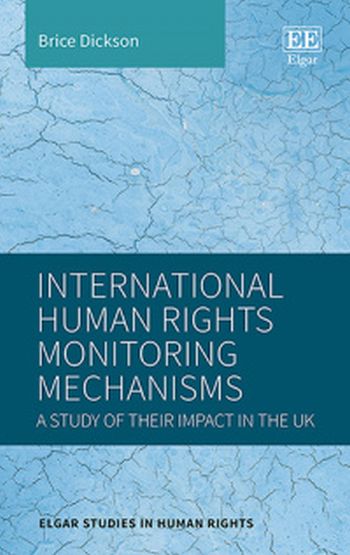
Brice Dickson examines the engagement of the United Kingdom with international human rights monitoring mechanisms, in particular those operated by the United Nations and the Council of Europe since 2000. Dickson explores how these mechanisms work in practice and whether they have any identifiable impact on how human rights are protected in the UK.
By analysing the role that monitoring mechanisms are meant to play in enforcing human rights standards, and the UK's commitment to that role, Dickson considers in turn the work of general monitoring mechanisms, mechanisms focused on civil and political rights or on social and economic rights, and mechanisms assessing discrimination based on gender, race, age or disability. The book demonstrates that, while monitoring mechanisms certainly play a crucial role in holding the UK government to account, crediting them with enhancing the protection of any specific right is problematic.
Providing a comprehensive study of the operation of international human rights monitoring mechanisms, this book will be an insightful resource for human rights law students and scholars, particularly those concerned with civil, social and non-discrimination rights. Academics interested in public international law and politics will also benefit from this text.